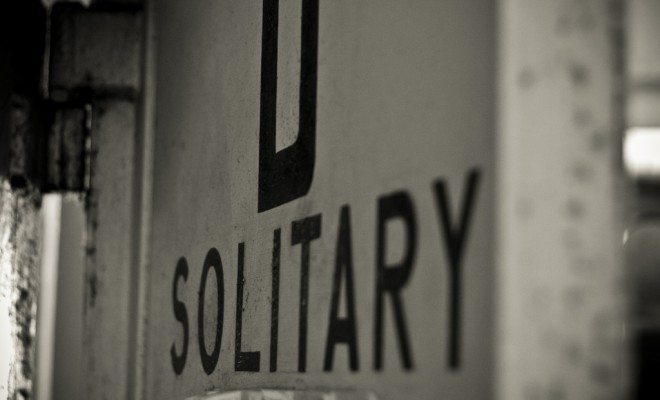 Image courtesy of [Shannon O'Toole via Flickr]
Image courtesy of [Shannon O'Toole via Flickr]
News
What Kalief Browder’s Tragic Story Tells Us About the Prison System
A New York man named Kalief Browder, who spent three years behind bars without a trial after being accused of a robbery in 2010, committed suicide this past Saturday in his Bronx home. His story is now raising questions for many about the prevalent injustices inherent in our prison system.
In 2010 Browder, then 16, was arrested on suspicion of stealing a backpack. He was eventually sent to Rikers Island where he would spend three years awaiting a trial that he hoped would prove his innocence. Browder spent roughly two of his three years in solitary confinement suffering intense physical and emotional abuse and was severely beaten by officers and other inmates. He also attempted suicide at least six times.
In a 2013 New Yorker interview with Jennifer Gonnerman, Browder recalled punishments he would receive from the guards for attempting to commit suicide. Browder recalled one incident where he ripped off the sheets of his bed in his jail cell and fashioned them into a noose. When he was about to hang himself, guards stormed into his cell, tackled him into his bed, and punched him repeatedly. As a punishment for this suicide attempt, the guards starved Browder for up to four meals at a time.
In 2013, he was allowed to go home after the charges against him were dropped. He never had a trial.
His attorney, Paul Prestia, described the difficulties that he faced after leaving prison, saying, “every day was a struggle. He lived with a degree of sadness every day since his release.” Prestia said:
When he came out [of jail] and I first met him, he was completely broken — I had to show him how to use a computer; he had to get a job. These were issues he was going to have for his whole life. It’s not his fault. He didn’t deserve that.
After his release, Browder experienced deep bouts of depression and became increasingly paranoid. Six months after his release, Browder attempted suicide, and was hospitalized. During his time in the hospital, Browder was said to be gaunt, restless, and deeply paranoid. While he was eventually released from the hospital, and succeeded for some time–at one point earning a 3.5 GPA at Bronx Community College and tutoring GED students, these issues appear to have persisted. Browder committed suicide on June 6; he had just turned 22 years old.
Browder’s story is deeply tragic and problematic. Someone stuck in a prison for three years waiting for a trial should not be subjected to severe beatings, starvation and other mistreatments. Of the 10,000 inmates at Rikers Island, about 1,500 have been there for the last year without being convicted of a crime. It’s hard to determine how long the wait for a trial usually is; some statistics say a few months, while others wait several years. In Browder’s case, a real trial was never had, and he was released without the necessary resources.
The horrible facts of Browder’s incarceration echo multiple concerns about the way we treat our nation’s prisoners, particularly the racial inequalities in the justice system. The U.S. is said to currently imprison a larger percentage of its Black population than South Africa did at the height of apartheid. African Americans are incredibly overrepresented in prisons. Despite making up only 13 percent of the population, they made up 38 percent of state prisoners in 2011. This highly problematic reality is highlighted by cases like Browder’s: how many lives must end before citizens, particularly African-American men, are treated fairly in our justice system?
There are also concerns specifically about Rikers Island that are now coming to light. A report from the U.S. Department of Justice described “rampant use of unnecessary and excessive force” by guards against teenage inmates on Rikers Island. Surveillance footage obtained by Gonnerman shows Browder being beaten by a guard and assaulted by a large group of inmates. Prestia points out that the fact that this kind of treatment happened in the U.S. is shocking, stating:
When you go over the three years that [Browder] spent [in jail] and all the horrific details he endured, it’s unbelievable that this could happen to a teen-ager in New York City. He didn’t get tortured in some prison camp in another country. It was right here!
In April in a statement provided by the New Yorker, New York City Mayor Bill de Blaiso said that Browder’s “tragic story put a human face on Rikers Island’s culture of delay — a culture with profound human and fiscal costs for defendants and our city.” Since Browder’s release some progress has been made and de Blaiso’s administration has issued a series of major reforms at Rikers. For example, it was able to end the practice of putting 16 and 17-year-olds into solitary confinement. While that’s certainly progress, the tragic end to Browder’s story still brings up many seriously problematic issues that are far from being solved.








Comments